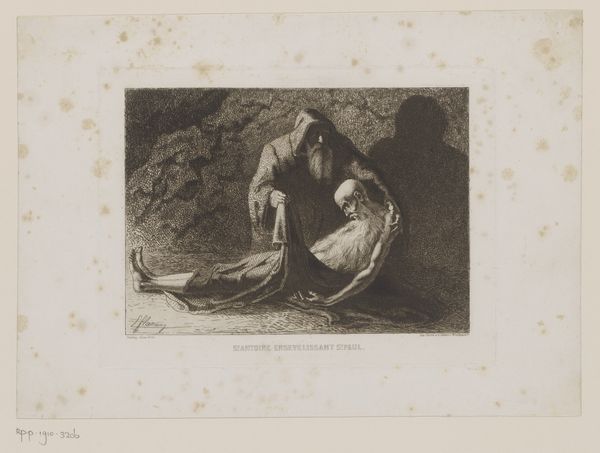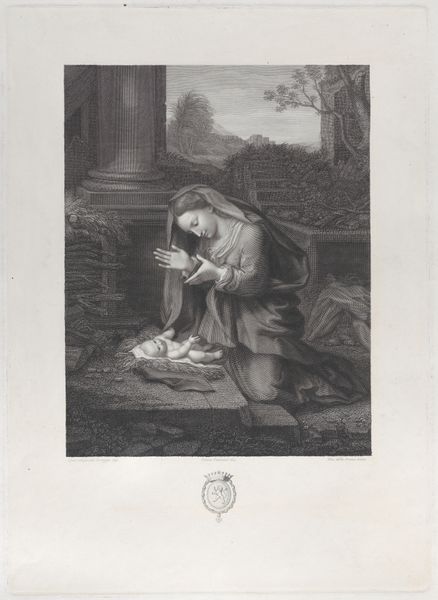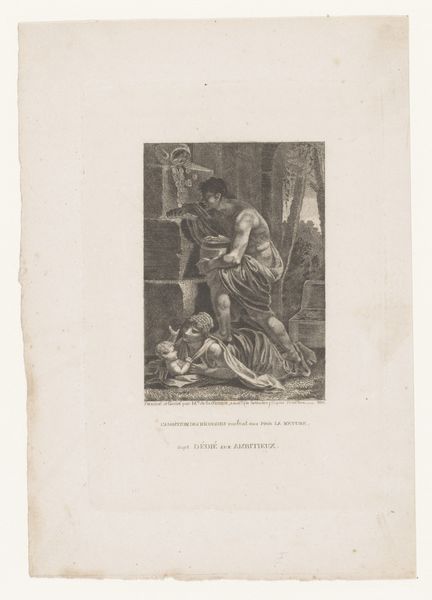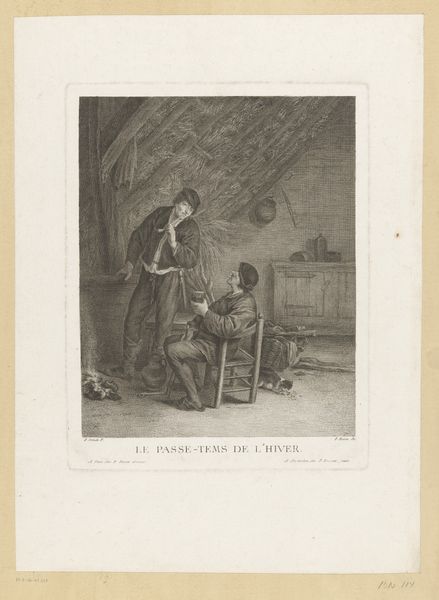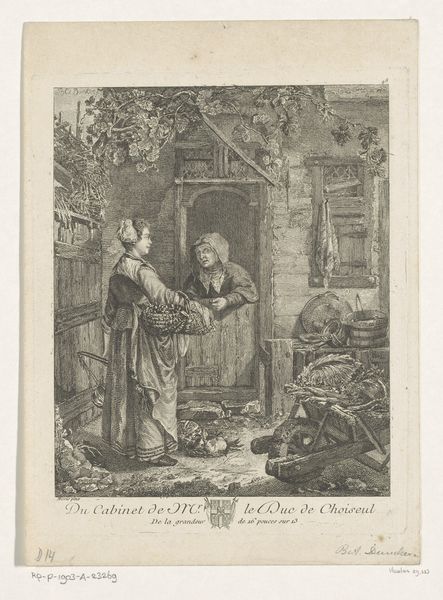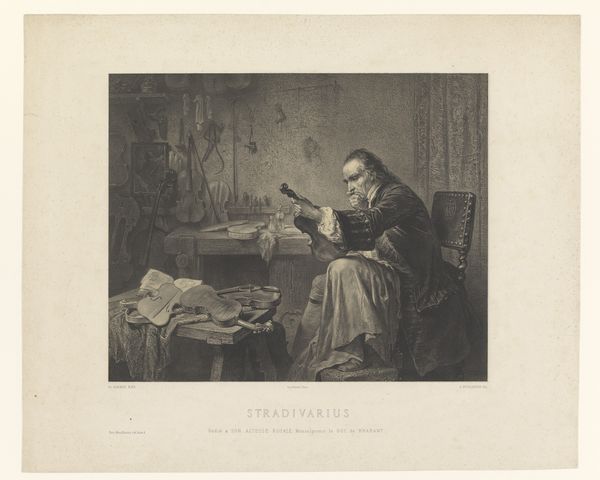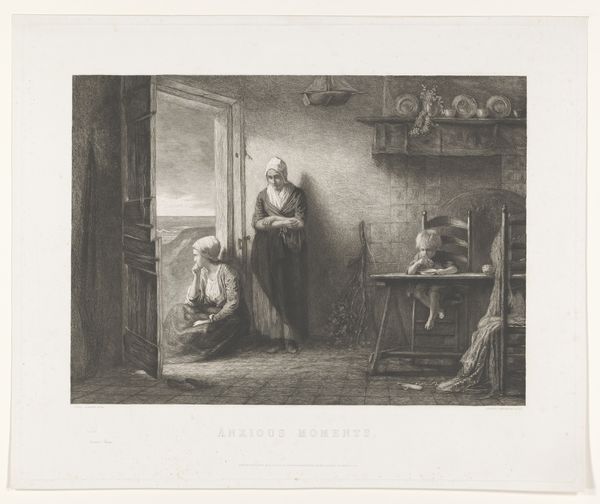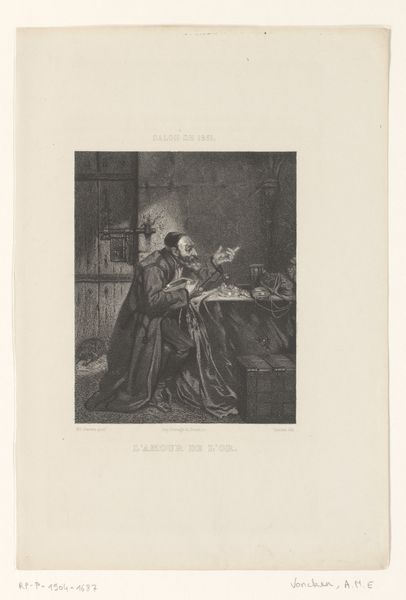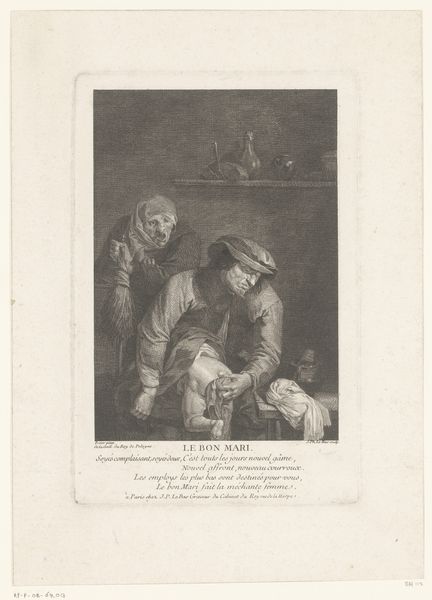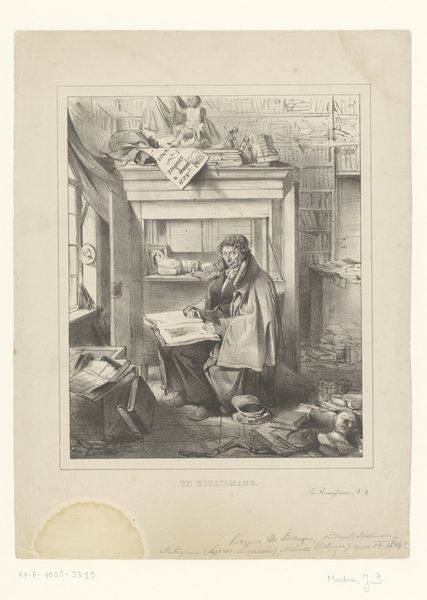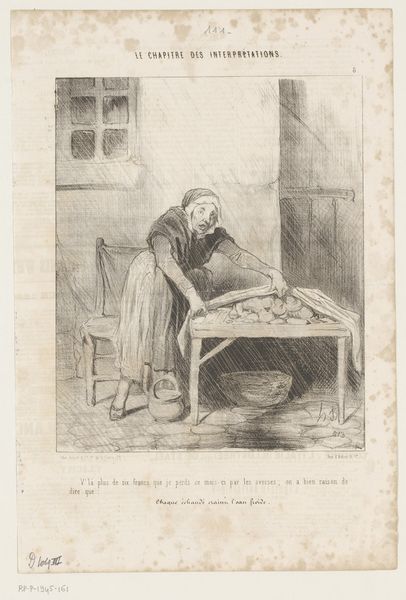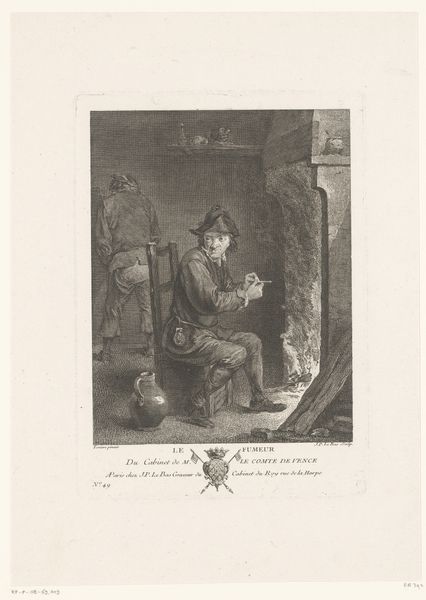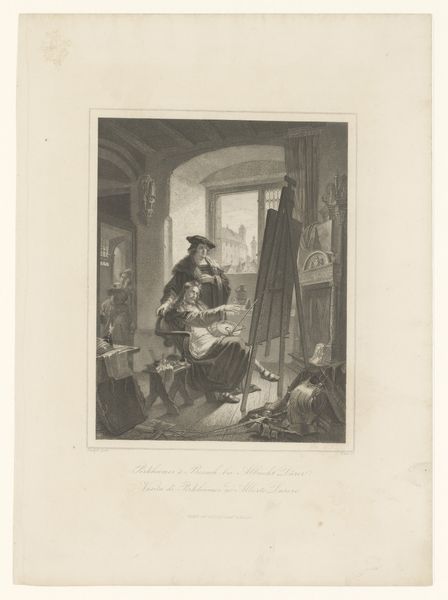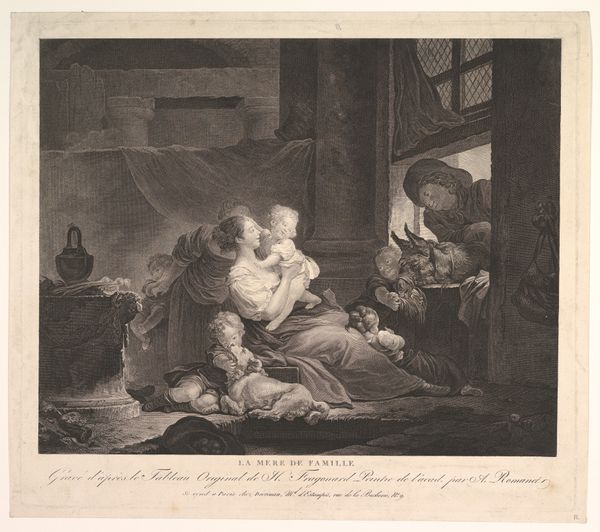
print, engraving
#
baroque
# print
#
figuration
#
history-painting
#
engraving
Dimensions: height 330 mm, width 226 mm
Copyright: Rijks Museum: Open Domain
This mezzotint print of Mary adoring the Christ Child was made by John Faber II in the 18th century. Mezzotint is an intaglio printmaking process that relies on creating tone, rather than line. First, the plate – usually copper – is systematically roughened with a tool called a rocker. If printed at this stage, it would produce solid black. The image is then created by gradually burnishing away the burr to a greater or lesser degree, allowing it to hold less ink, thus producing lighter tones. The velvety blacks and subtle gradations of light and shadow are characteristic of the technique. Considered a reproductive process, mezzotint was ideally suited for the dissemination of popular paintings. The skilled labour and time involved in preparing the plate was considerable; the level of tonal nuance achieved was difficult to match through other methods. By understanding its laborious process, we appreciate the artistry involved in printmaking, which is too often separated from fine art.
Comments
No comments
Be the first to comment and join the conversation on the ultimate creative platform.
